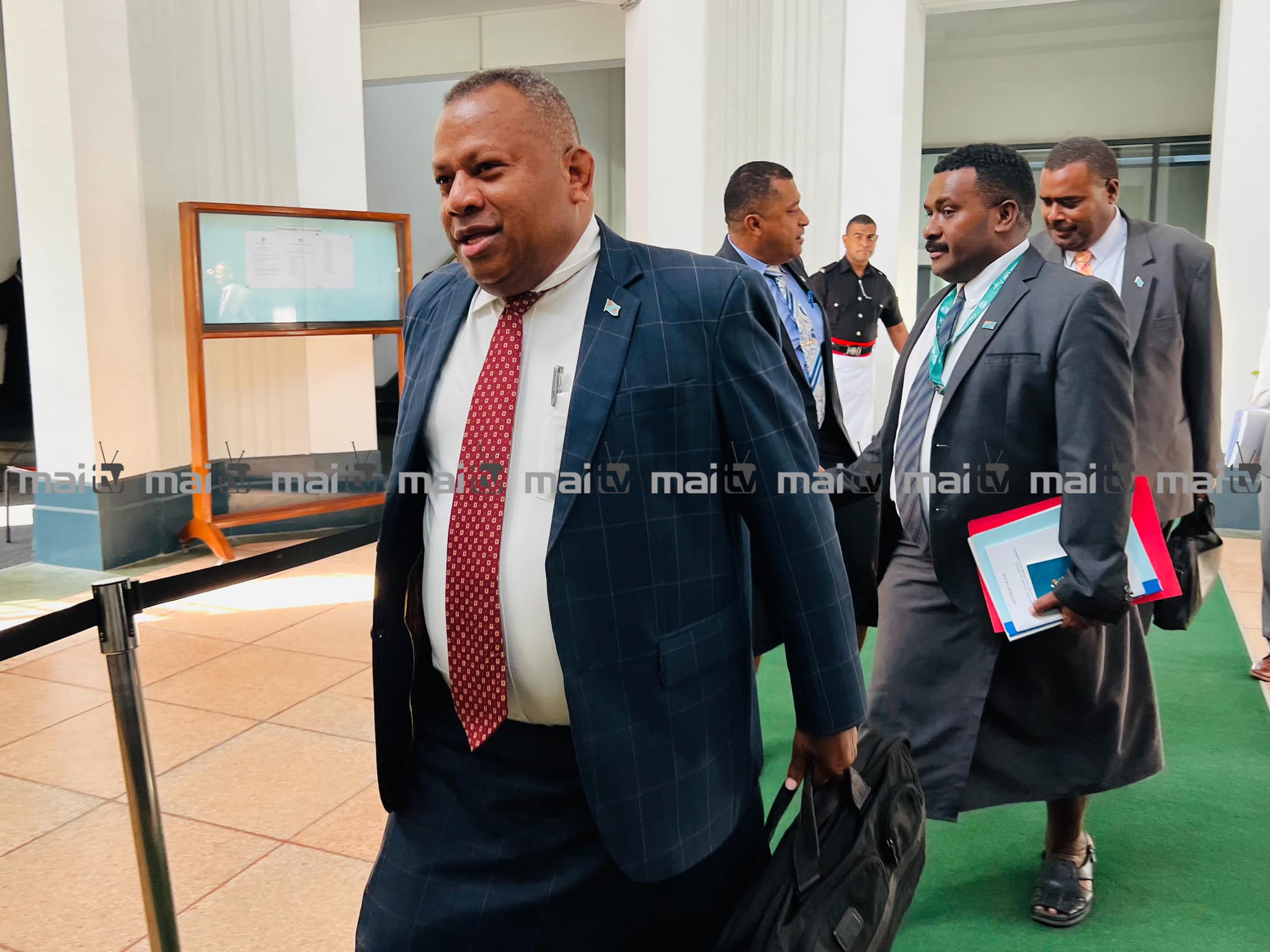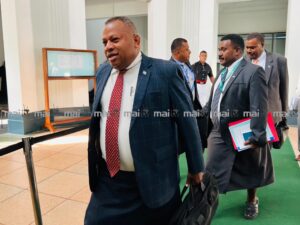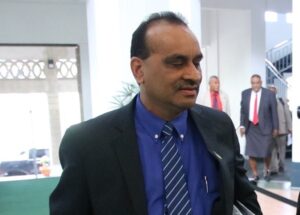Fiji’s Opposition Leader Inia B. Seruiratu voted against the 2025–2026 Budget, calling it a “panic budget” driven by the 2026 General Elections and criticising its lack of fiscal foresight and transparency.
He accused the minister of “throwing public money all over the place” for “spending strategies to win votes,” likening it to “spending money like drunks in a nightclub.”
In his response to the budget today, Seruiratu reiterated his primary concerns, highlighting the proposed expenditure of $4.8 billion against a projected revenue of $3.9 billion, asserting it “borders on irresponsibility.”
He pointed to the national debt’s rise from $9.1 billion to $11.7 billion under the current government—an increase of “$2.7 billion within just these three years”—contrary to earlier promises. He defended the debt increase under the FijiFirst administration between 2019 and 2022, attributing it to the uncertainties caused by natural disasters that affected Fiji during that period, exacerbated by the impact of COVID-19.
The budget, he added, also fails to offer a “clear strategy to diversify our economy to build resilience against economic shocks,” with nine key sectors still unrecovered from pre-pandemic levels, including Construction, Mining, and Manufacturing.
Seruiratu also warned that the significant allocation to operating expenses over capital investment (81%:19%) points to “unsustainable budgeting.”
“This indicates a reliance on immediate needs over long-term investments, which will hinder future growth and sustainability,” he said.
In the projected budget, operating expenditure has been set at $3.9 billion—up by 17.2 per cent—whereas capital expenditure has decreased by 16.4 per cent to $926.6 million.
In its explanation, the government stated that the shift in ratio “is mainly due to the reclassification of expenditures under the new budget classification structure.”
Expenses that were reclassified from capital to operating in the 2025-2026 Budget included the Fiji Scholarship Scheme ($153.0 million), Vehicle Leasing ($42.3 million), Back to School Assistance ($40.0 million), Tourism Marketing Grant ($35.0 million), Electricity Subsidy ($9.5 million), FNPF Pension Payout ($4.0 million), Termite Control Assistance Programme ($2.9 million), FDB Subsidy: Interest on Agriculture Loans to Fijians ($2.0 million), COVID-19 Credit Guarantee Facility Interest ($2.0 million), VAT Aid-in-Kind ($2.0 million), Outstanding Claim for the Momi Bay Road Development ($2.0 million) and the Northern Development Projects ($2.0 million).
If these expenses had not been shifted, the operating-to-capital expenditure ratio would equate to 75:25 per cent—the same as the government’s total revised spending for the current financial year.
However, Seruiratu maintained that the budget lacks long-term sustainability, risking “sacrificing the future of our children.”
To address these, Seruiratu proposed that the government “find ways to increase revenue generation to reduce our borrowings” and “seek to learn a thing or two from the reform of the FNPF to stabilise the financial situation.”
He urged a “comprehensive strategy to target their recovery” for struggling economic sectors, and advocated “seriously considering reforming our SOE as a matter of urgency,” including assigning a dedicated minister to oversee all state-owned enterprises.
Seruiratu also suggested rechanneling revenue from higher-income earners.
“I am of the view that, for example, those in the higher income brackets could pay for health services, and a little more in water rates. These revenue sources could be channelled to help those amongst us that are in need of greater support.”
While expressing his overall rejection, Seruiratu acknowledged certain positive aspects of the proposed $4.8 billion budget announced two weeks ago.
He described the budget’s theme, “Building Security, Stability and Prosperity,” as “well intended, and rightfully so.” He also thanked the government for measures aimed at cushioning the rising cost of living, including the “establishment of a Joint Enforcement Taskforce to monitor prices” and the “review of the BAF protocols to dismantle trade barriers and increase import competition for food items.”
The “pay increase for Civil Servants is welcomed,” and he acknowledged the “increase in funds allocated for the fight against corruption.”
However, he deemed these cost-of-living measures “minimal” with “very minimal impacts.”
The budget debate continues tomorrow.
Photo: File
Related Articles:









